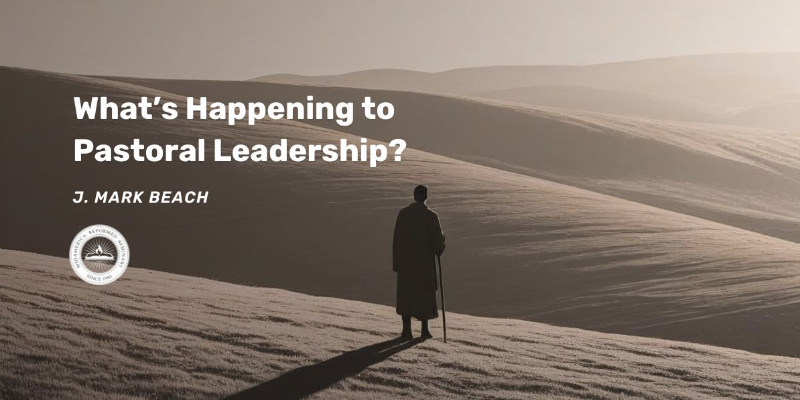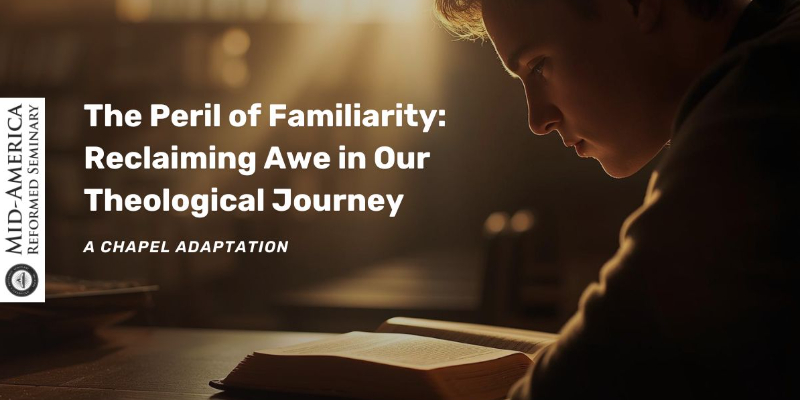
The Seven Deadly Sins and a Sin-Sick Culture
This article is adapted from the September 2022 issue of The Messenger.
The Seven Deadly Sins cast a big grin across our land today—sadly so. The devil smirks, for ours is a culture that promotes pride—sports pride, state pride, ethnic pride, and gay pride. Envy is welcomed so long as you’re the one being envied, while anger is the order of the day. All the sins of the past must be righted. People rage on social media and on the road. Sloth (a form of ingratitude and jadedness) has come to define a swath of the millennial generation—nothing is much good, and the future is not worth working toward. As for greed: well, greed is good—it makes the economy hum. With gluttony—okay, with that sin we finally get to a sin that our collective culture calls a sin—one wears their paunch to their shame, but others celebrate their bulging thighs as their beautiful self. Finally, American and Canadian society can no longer blush, for lust is luscious for a lusting society. Milk it, nurture it! By all means, protect it!
These sins—so common, lurking just below the surface of our social conventions—produce an enormous fallout that wounds human life. These sins (called deadly because, like pregnant mothers, they easily give birth to other sins) must be combatted. Indeed, in waging the battle of the Christian life, a knowledge of the seven deadly sins helps us to see where and how the devil gains footholds in our lives to bring us into misery. Let us briefly look at each of them.
The sin of Pride bottoms out in a disposition that a person is not subject to God and His will. Pride tops the list of the seven deadlies. Of course, as Christians, we try to hide our pride and don’t readily admit that we are proud (which easily gives way to conceit), though pride and conceit are not the same. This is why we must beware lest our good gifts (even our repentance) become the door through which pride is welcomed into our hearts. In the well-known parable, the Pharisee expresses gratitude that he is not like other people. But he is blind about himself. He cannot recognize his own glaring sins because pride gets in the way. Pride stands there, broad-shouldered, straight, and confident. The Pharisee sees himself as spiritually handsome. “Take a look, God! You like what you see, don’t you?” (“I like what I see!”).
We do the same, not by looking at the sins we eagerly acknowledge but by pointing to those areas in our lives that are intact. Progressivism, conservativism, traditionalism, liberalism, theological knowledge, Christian service (take your pick)—the vulnerable area is often where you judge yourself strong. There, pride lurks.
God assessed the Pharisee differently than he assessed himself (see Luke 18:9-14). His pride is a deadly sin.
Envy comes next. It is the sin that hurts inside. We envy, and we ache. It is miserable to be envious. It gnaws at our spirit. It deflates and depresses us. And envy most assaults us with our peers. Who envies Bill Gates for his wealth? We are much more likely to envy a peer. Much more likely, a pastor will envy the better salary or success his colleague enjoys down the road than the success (and wealth) of the televangelist Joyce Meyer. Who envies Aaron Rogers for his skills as a quarterback? More likely, we will envy the praise heaped on a co-worker than a person whom we judge our superior. Envy is an ugly sin since envy is discontent, even sadness, over someone else’s blessings. Envy, then, is closely linked to discontent with your own situation in life. Because of pride and other vices, we can also want to be envied. We regale others on our successes to feel important and, hopefully, envied. We purchase new gadgets, perhaps, in the hopes of being envied. That is all quite pathetic, of course. But such is the vapid joys of wanting to make other people miserable for not recognizing, unprompted, our importance.
Envy begets desires to see the envied brought down, fail, flunk, and suffer loss. Cain slew Abel out of envy. Saul cast an envious eye on David (because of the greater praise David received) and plotted to kill him.
The envious, if they are Calvinists, easily blame God for the way life is, for God is in control. He could do something about it and doesn’t. Now the person who envies suffers more rot of the soul. Envy is a deadly sin.
With Anger, we arrive at a maddening, unreasonable sin—though, finally, all sins are nonsensical and asinine. Anger blinds us, though. It makes us see others as sub-human enemies, not just enemies. Anger often lives in a fantasy world of imagining “making things right” in a world of so much wrong, especially wrong done to you or those close to you. Indeed, behind anger is an enormous pain, usually. Anger is the mechanism to shield our vulnerability, our weakness. Anger rages back for self-protection. Anger, a deadly sin, easily becomes habitual—forming ruts in our psyche, becoming the default disposition for disappointment. Anger also feeds on itself. Anger gains size and momentum like a snowball rolling down a snowy slope. It gets more dangerous and violent as it accelerates and widens. Anger can violently erupt or silently smolder. Each form, though, harms others and the self. Unlike God’s, our anger is seldom righteous. It colors outside the lines of justice. Our anger is unjustly vengeful and destructive—a passion that flames or smolders to do harm. Hence, we afflict others with the silent treatment; we slander or diminish the persons we hate by bearing false witness against them; we plot harm, in some form, to fall upon the objects of our wrath. “I will have justice,” our angry heart protests to itself. But is justice what we serve? Anger is a deadly sin.
Sloth is the most misunderstood deadly sin. It is not laziness, though the slothful may, as a side-effect, behave in a lazy fashion. Rather, sloth is spiritual jadedness, born of weariness; it is a form of ingratitude in the face of divine goodness; it is a dejection of faith and a spiritless carelessness— literally expressed in the phrase, “I couldn’t care less.” In a very significant sense, it is spiritual melancholy. This is where the sluggishness and perceived laziness come in; the lazy traits are secondary. The sin of sloth involves a poisoned will toward spiritual good. It comes to expression in a blasé, worn out, and weary attitude toward the things of God. As such, it is a form of despair and therefore exhibits as spiritual joylessness.
The slothful person feels like a squeezed-empty tube of toothpaste, all used up. The slothful suffer a deflated heart. The idea of vanity in the book of Ecclesiastes gets at one side of sloth (it’s all a waste of time), but no single biblical text captures all its faces and angles. It is partly cynicism, partly loneliness, sorrow, shame, partly low self-esteem, partly a smattering of other deadly sins enjoying a harvest in one’s soul. In short, the slothful feel like nothing really matters, so why try? As a result, its fruits are self-centeredness, inactivity, ingratitude, aimlessness, and a kind of bench-warming that doesn’t pay attention to the game and isn’t even certain it matters who wins. In any case, the slothful, as bench-warmers, aren’t ready to play. As you can see, sloth is a deadly sin.
Greed (this transgression is also called Avarice) is the sin that thinks money and things will buy happiness. It is the sin that wants more than it needs. Avarice is an inordinate love of temporal things, usually riches.
It should be noted immediately, though, that being greedy is not necessarily miserly. The avaricious soul may be miserly or a spendthrift. The possessing can take the form of hoarding or spending. Being greedy to have more often goes with having more to indulge oneself. The Bible addresses greed from a sideshot when it takes us to the rich fool of Jesus’ parable. This fellow seems to have earned his wealth all above board and fair. Very well! No greed yet. His mistake comes in what he says to his soul upon having such wealth, for he says: “Soul, you have it made. Enjoy the good life. Relax! Bask in your riches and take it easy!”
What is so foolish about that, you ask? Well, he failed to notice that he was dirt poor in the spiritual department of his life—he was not rich toward God.
Greed is one of the overtly idolatrous sins—and it is stupidity! Standing next to the secular mantra of the West—“Greed is good!”—stands the biblical indictment, “You fool!” For the greedy, God is reduced to an emergency helper since money has most of life covered for you. This god, at the helm of our lives, is our own creation for our own selfish reasons. God and Mammon cannot be served side-by-side as two masters! Like the others on the list, avarice is a deadly sin.
This brings us to the chubbiest sin of the bunch, Gluttony. Why does this pudgy sin keep company with such mean sins as envy and anger or such conceited sins as pride and avarice? Does gluttony really deserve to be one of the seven deadlies?
Yes, a deadly sin it is. Don’t be deceived by its portly grin. Underneath the smiling double chin of gluttony is a world of misery. As the novelist Peter De Vries notes, “Gluttony is an emotional escape, a sign something is eating us.” Gluttony is an inordinate obsession with food, drink, and the consumption that goes with each. Lust, as we shall see, gets sex wrong. Gluttony gets food wrong— it blows food out of proportion to its importance (eating too much, fussing too much, or consuming only the best). It, too, is a form of idolatry—a doing obeisance to the god of the stomach.
So, ask yourself: how do food and drink function in your life, and what do you make of the importance of each? We need questions like that, for life is more than food, and the body is more than clothing (see Matt. 6:25). Like a drug, we can use food and drink to ease our pain. But serving this god will not satiate or satisfy. This is why gluttony is a deadly sin.
Last on the list of the seven deadlies is Lust. Lust is a pimp of a sin, for it uses others and disposes of them. It is like a drug that begs to be indulged and bestows a temporary high, only to leave us lower, uglier, hungrier, and needier, poisoning our spirit and rotting our souls. The more we give in to it, the more it demands. It is insatiable.
Lust is also petty and small-minded, besides being completely self-centered. And, not incidentally, it is also (usually) destructive of others, for it literally wants a person’s body without the person! As such, lust, trampling marital boundaries, perverts God-given sexual desire and seeks sexual fulfillment without fellowship. It most often thrives in the fantasy and private world of masturbation. Sexual joy is sought in this fantasyland. But lusting after anybody and everybody was never in the divine design plan. Sexual love is satisfied within marriage. Sexual desire inflates and celebrates union in that context. Lust, by contrast, deflates and dejects persons. It depersonalizes the other and the self. Lust, and the mental porn accompanying it, is therefore soul-less sex—bodies without souls. And sexual union in the soulless form is estrangement instead of intimacy. As a result, we are left spiritually and sexually famished. That is why lust is a deadly sin.
With this brief survey of the seven deadly sins, we would be remiss if we failed to note the antidote to these sins as a path for the Christian life. In every case, not to oversimplify, God as our first love, and faith in His love for us, as the lover of our souls in Christ Jesus, is the remedy. Pride is beaten down when God is the love of our lives (we’re loved and humbled). Envy is countered in celebrating grace and blessings to others, even as it is countered by one trusting God and His love for us, trusting that His plan for our own lives is blessedness. We find victory in loving Him and our blessed neighbor. Anger meets defeat in God’s own gracious and loving mercy and forgiveness, as it also meets defeat in the knowledge that God’s justice and mercy will prevail as we celebrate His kingdom come. Resting in and enjoying God’s love is the beginning of our triumph over sin, such that Sloth is defeated when we stop blaming God. Love God, and know that He has never stopped loving us, even in our state of ingratitude and jadedness. Greed, Gluttony, and Lust—our gods of things, of the stomach, and of genitals—is misplaced love in every case; these gods can neither meet our longing for love and acceptance nor our need for fellowship and embrace. Only God’s ardor for us, our Savior’s loving devotion to us, conquer these aches and miseries and are the remedy to bring us to a blessed state of comfort and hope. A sin-sick culture wallowing in these miserable sins needs Jesus Christ as the remedy, as we do!

J. Mark Beach is the Professor of Ministerial and Doctrinal Studies at Mid-America Reformed Seminary.
Recent articles




